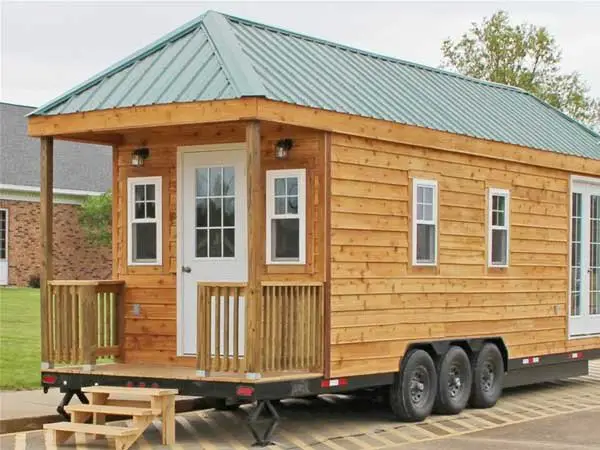Have you ever wondered if tiny homes are legal in Illinois? Well, the answer might surprise you. Despite their increasing popularity, the legal status of these pint-sized dwellings remains a gray area in the state. While some areas have embraced the tiny home movement and established regulations to accommodate them, many counties and municipalities are still hesitant to fully recognize and regulate these innovative housing options. In this article, we’ll explore the current state of tiny house legality in Illinois and shed some light on the challenges faced by those seeking to live in these charming, compact homes.
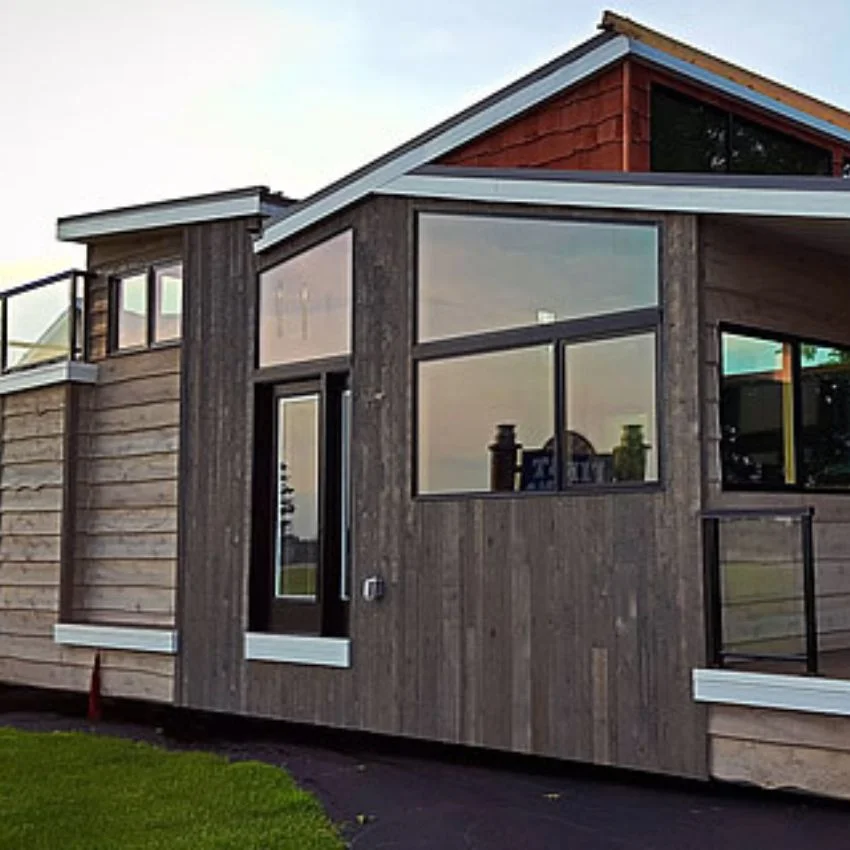
Understanding Tiny Homes
In recent years, the concept of living in a tiny home has gained significant attention and popularity. But what exactly are tiny homes? Simply put, tiny homes are small, compact houses that are typically under 400 square feet in size. These homes are designed to maximize space and minimize clutter, offering a simpler and more sustainable way of living. While there is no set definition for what qualifies as a tiny home, they often include the essential features of a traditional residence, such as a bathroom, kitchen, and sleeping area. Tiny homes can be built on foundations or on wheels, allowing for flexibility and mobility.
Types of Tiny Homes
Tiny homes come in various forms and designs, each catering to different needs and preferences. One popular type is the tiny house on wheels, also known as a THOW. These homes are built on trailers, allowing homeowners to tow and relocate them as desired. THOWs offer the advantage of mobility, enabling individuals to explore different areas and live a more nomadic lifestyle. Another type is the accessory dwelling unit (ADU), which is a separate, self-contained living unit on the same property as a primary residence. ADUs can be used to accommodate family members, provide rental income, or offer additional living space. Other types of tiny homes include container homes, treehouses, and yurts, each with its own unique charm and appeal.
Benefits of Tiny Homes
There are numerous benefits to living in a tiny home. One of the most significant advantages is affordability. Tiny homes typically have a lower price tag compared to traditional homes, making them an attractive option for first-time buyers or those looking to downsize. With less square footage, the cost of construction, maintenance, and utilities is significantly reduced. Moreover, the small size of tiny homes encourages a minimalist lifestyle, prompting owners to prioritize quality over quantity and embrace a more sustainable way of living. Tiny homes also offer a sense of freedom and flexibility, allowing individuals to live closer to nature, travel more easily, and minimize their environmental footprint. Additionally, these compact homes can foster a stronger sense of community and promote connections with neighbors, as many tiny home communities encourage shared spaces and a cooperative living approach.
Growing Popularity of Tiny Homes
The popularity of tiny homes has been steadily increasing across the United States, including in Illinois. With rising housing costs and a growing desire for a simpler lifestyle, many individuals are turning to tiny homes as a viable alternative. The tiny home movement has garnered attention through television shows, social media, and the promotion of sustainable living. As people become more aware of the benefits and possibilities of living in tiny homes, the demand for these unique dwellings continues to rise. In response to this growing interest, the tiny home industry has flourished, offering a wide range of design options, builders, and resources for aspiring tiny homeowners. The interest in tiny homes is not merely a passing trend but a reflection of a changing mindset and a desire for a more intentional and sustainable way of living.
Legal Considerations in Illinois
While the appeal of tiny homes is undeniable, it is essential to understand the legal considerations that come with owning and residing in one. Building codes and zoning regulations play a crucial role in determining the legality of tiny homes in Illinois.
Building Codes and Zoning Regulations
Building codes and zoning regulations exist to ensure the safety, health, and welfare of residents and the community as a whole. They establish the minimum standards for construction, electrical, plumbing, and other important aspects of housing. Building codes regulate the quality and safety of structures, while zoning regulations govern the use of land and the type of structures allowed in specific areas.
Importance of Building Codes and Zoning Regulations
Building codes and zoning regulations are vital in maintaining the integrity and safety of communities. They help prevent hazards, ensure proper infrastructure, and maintain property values. By adhering to these regulations, homeowners can have peace of mind knowing that their homes meet the necessary standards and are built in a way that protects their well-being.
Building Codes in Illinois
In Illinois, building codes are primarily governed by the Illinois Energy Conservation Code and the International Building Code. These codes provide detailed guidelines on the construction and energy efficiency standards for residential and commercial buildings. While the specific requirements may vary depending on the jurisdiction and the type of structure, it is crucial to consult the applicable building codes when building or modifying a tiny home.
Zoning Regulations in Illinois
Zoning regulations in Illinois are determined at both the state and local levels. The state provides a framework for zoning regulations, but it is ultimately up to individual cities and counties to establish their specific zoning ordinances. Zoning regulations determine how land can be used, whether it is for residential, commercial, or industrial purposes. They also dictate the required setbacks, lot sizes, and restrictions on building height and size.
Applicability of Building Codes and Zoning Regulations for Tiny Homes
Tiny homes in Illinois must comply with the applicable building codes and zoning regulations. However, due to the unique nature of tiny homes, their classification and adherence to these regulations can be more complex. This is because tiny homes do not easily fit into the traditional categories defined by building codes and zoning ordinances. Some jurisdictions may consider them as detached accessory dwelling units or recreational vehicles, while others may have specific regulations for tiny homes. It is crucial to research and understand the local regulations before initiating the construction or placement of a tiny home in Illinois.
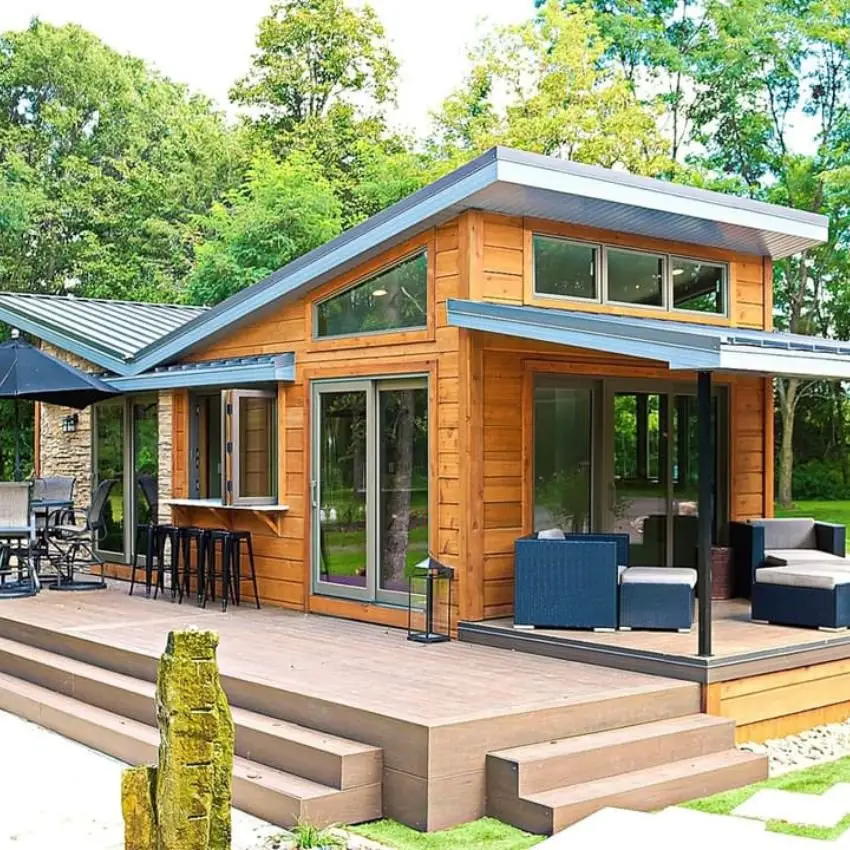
Statewide Regulations for Tiny Homes
To address the growing interest in tiny homes, the state of Illinois has implemented specific regulations and guidelines to ensure the safe and legal construction of these dwellings.
Illinois Tiny Home Laws
Illinois does not have specific laws dedicated solely to tiny homes. However, there are existing laws and regulations that can apply to tiny homes based on their classification and use. By understanding and complying with these laws, prospective tiny homeowners can navigate the legal landscape and ensure their homes meet the necessary requirements.
Illinois Department of Community Affairs Guidelines
The Illinois Department of Community Affairs provides guidelines and resources for building officials, homeowners, and builders to ensure compliance with building codes, zoning regulations, and other requirements. These guidelines can be helpful in understanding the regulations that apply to tiny homes and can provide valuable insights into the permitting process and code compliance.
Minimum Size Requirements for Dwellings
Most jurisdictions in Illinois have minimum size requirements for dwellings. These requirements often dictate the minimum square footage, ceiling height, and room dimensions for habitable spaces. Tiny homes must adhere to these minimum size requirements to be considered legal residences.
Code Compliance and Safety Standards
Tiny homes in Illinois must meet the necessary code compliance and safety standards, including those related to structural integrity, electrical systems, plumbing, and fire safety. Building officials will typically conduct inspections to ensure that these standards are met before granting occupancy permits. It is important to work with experienced contractors and builders who are knowledgeable about the specific requirements for tiny homes in Illinois.
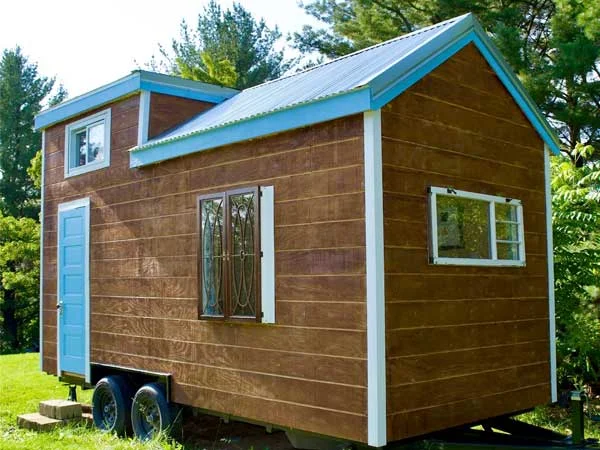
Local Regulations for Tiny Homes
In addition to statewide regulations, local jurisdictions in Illinois have their own building codes and zoning ordinances that may impact the legality of tiny homes.
Varying Regulations Across Cities and Counties
The regulations for tiny homes can vary significantly from one city or county to another in Illinois. Some areas may have specific zoning districts or ordinances that allow for tiny homes, while others may not address them at all. It is crucial to research and understand the regulations in the specific area where you plan to build or place a tiny home.
Researching Local Building and Zoning Codes
To ensure compliance with local regulations, it is essential to research the building and zoning codes in the jurisdiction where you plan to establish your tiny home. Contacting the local building department or zoning office can provide valuable information regarding setbacks, lot size requirements, and any specific regulations related to tiny homes.
Specific Requirements and Restrictions in Different Areas
Different cities and counties in Illinois may have specific requirements and restrictions for tiny homes. Some areas may require specific foundations or connections to utilities, while others may have limitations on the number of tiny homes allowed on a single property. Understanding these specific requirements is crucial to avoid any legal issues or complications during the construction or placement process.
Differences in Tiny Home Acceptance
It is important to note that the acceptance and recognition of tiny homes can vary from one community to another in Illinois. Some areas may have more open-minded approaches to tiny homes, while others may be more resistant to their presence. Working closely with local officials and building relationships within the community can help facilitate the acceptance and integration of tiny homes in a particular area.
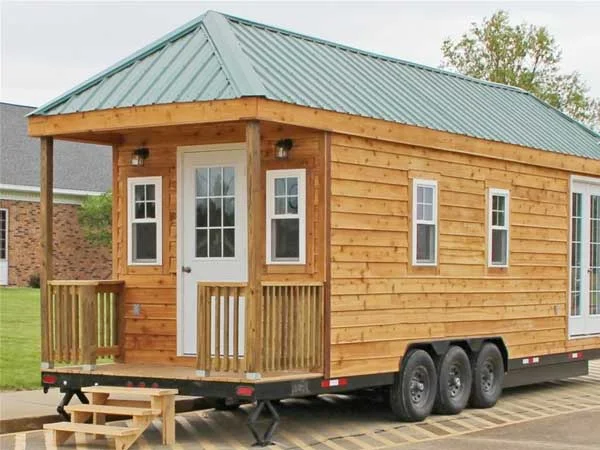
Permitting Process for Tiny Homes
Obtaining the necessary permits is an essential step in legalizing the construction or placement of a tiny home in Illinois.
Applying for Building Permits
Building permits must be obtained before starting the construction of a tiny home. The specific requirements for building permits can vary depending on the jurisdiction. However, they typically involve submitting detailed plans, obtaining approvals from various departments, and paying the required fees. It is advisable to consult with the local building department to understand the specific permitting process and requirements for tiny homes in Illinois.
Understanding Zoning Approvals
Zoning approvals may also be necessary for placing a tiny home on a specific property. Zoning officials will review the proposed location, setback requirements, and compatibility with neighboring properties. It is important to familiarize yourself with the local zoning regulations and consult with the zoning office to ensure compliance and obtain the necessary approvals.
Inspections and Certifications
During the construction process, building officials will conduct inspections at various stages to ensure compliance with building codes and safety standards. These inspections typically include reviewing the electrical systems, plumbing, and structural integrity of the tiny home. Once the construction is complete and all inspections are passed, the building department will issue a certificate of occupancy or a similar permit, indicating that the tiny home meets the necessary requirements for habitation.
Navigating the Permitting Process
Navigating the permitting process for tiny homes can be complex and time-consuming. It is advisable to seek guidance from professionals, such as architects and contractors experienced in building tiny homes, to ensure compliance with building codes and regulations. Working closely with local officials and being proactive in seeking their guidance can also help streamline the process and avoid potential setbacks or delays.
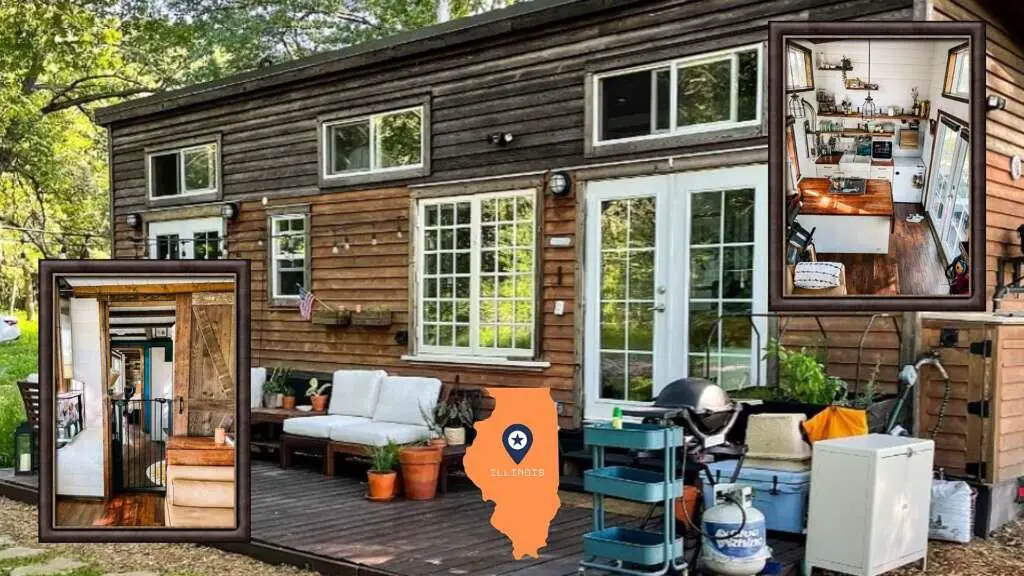
Advocacy and Organizations
Support and advocacy for the tiny home movement play a crucial role in shaping regulations and fostering acceptance of tiny homes in Illinois.
Tiny Home Advocacy Groups in Illinois
There are several advocacy groups in Illinois that support the development and legalization of tiny homes. These organizations work to raise awareness, encourage legislative changes, and provide resources and support for individuals interested in the tiny home lifestyle. By getting involved with these groups, individuals can contribute to the growth and acceptance of tiny homes in Illinois.
Supporting Legislation for Tiny Homes
Advocacy groups in Illinois work towards supporting legislation that explicitly addresses the needs and concerns of tiny homeowners. This legislation can help establish clear guidelines and regulations for tiny homes, ensuring their legal status and protecting the rights of tiny homeowners. By supporting these legislative efforts, individuals can contribute to the broader recognition and acceptance of tiny homes in Illinois.
Promoting Awareness and Education
Promoting awareness and education is another important aspect of advocating for tiny homes. By hosting workshops, forums, and community events, advocacy groups can educate the public, lawmakers, and local officials about the benefits and possibilities of tiny homes. This increased awareness can help dispel misconceptions surrounding tiny homes and foster a positive environment for their development and integration.
Working with Local Officials
Building positive relationships with local officials is essential in the process of legalizing tiny homes in Illinois. By engaging in open and constructive dialogue, individuals can help local officials understand the benefits and potential of tiny homes. Collaboration between individuals, advocacy groups, and local officials can create opportunities to develop favorable regulations and zoning ordinances for tiny homes.
Examples of Tiny Home Communities in Illinois
Tiny home communities are emerging across Illinois, providing a supportive and like-minded environment for tiny homeowners.
Existing Tiny Home Communities
There are several existing tiny home communities in Illinois, offering individuals the opportunity to connect with like-minded individuals and share resources and amenities. These communities often provide common areas, communal gardens, and social events, fostering a strong sense of community and collaboration. Examples of these communities in Illinois include The Meadows, Wildwood Valley, and Prairie’s Edge.
Types of Tiny Home Communities
Tiny home communities in Illinois come in various forms and cater to different needs and preferences. Some communities are designed for permanent residents, while others offer a mix of permanent and transient residents. Some communities focus on specific themes, such as eco-friendliness or sustainable living. Each community offers a unique experience and atmosphere, providing individuals with options to choose the community that aligns with their values and lifestyle.
Success Stories and Challenges
The success stories of tiny home communities in Illinois serve as inspirations for those interested in this way of living. These communities demonstrate the possibilities of creating affordable, sustainable, and supportive living environments. However, it is essential to acknowledge and address the challenges that come with establishing and maintaining these communities, such as zoning restrictions, infrastructure limitations, and the need for community building and engagement.
Community Building and Collaboration
Community building and collaboration are at the heart of tiny home communities. These communities thrive through shared resources, cooperative efforts, and a spirit of mutual support. Residents often engage in community activities, such as potlucks, workshops, and volunteer projects, fostering connections and creating a sense of belonging. Building and nurturing these communities require active participation and collaboration among residents, further strengthening the bonds and sense of community.
Considerations When Buying or Building a Tiny Home in Illinois
There are several important considerations to keep in mind when buying or building a tiny home in Illinois.
Budget and Financing Options
Considering the budget is crucial when contemplating a tiny home purchase or construction. While tiny homes are generally more affordable than traditional homes, costs can vary significantly depending on factors such as size, materials, and finishes. It is important to establish a budget and explore financing options that align with personal financial circumstances. Researching available grants, loans, and other financial assistance programs can also help make the dream of owning a tiny home a reality.
Finding Suitable Land
Finding suitable land for a tiny home is another important consideration. In Illinois, zoning regulations and restrictions may limit the locations where tiny homes can be placed. It is essential to research the zoning regulations, land use, and access to utilities in potential areas. Exploring existing tiny home communities or purchasing land in areas that embrace the tiny home movement may offer more opportunities and support for tiny home ownership.
Choosing a Builder or DIY Construction
Deciding whether to hire a builder or embark on a DIY construction project is a personal choice that depends on individual skills, resources, and preferences. Hiring a professional builder can ensure expertise and adherence to building codes, while DIY construction allows for customization and cost-saving. It is crucial to thoroughly research potential builders, review their portfolio, and obtain references. For DIY construction, it is important to have a solid understanding of construction principles, obtain necessary permits, and follow building codes to ensure a safe and legal end result.
Resale Value and Market Demand
While tiny homes offer an affordable and sustainable housing option, it is important to consider the resale value and market demand. Understanding the local real estate market and trends can help determine the long-term viability and investment potential of a tiny home. Factors such as location, quality of construction, and the desirability of the tiny home lifestyle can influence the resale value and demand for tiny homes.
Conclusion
Tiny homes offer a unique and compelling way of living that resonates with individuals seeking simplicity, sustainability, and affordability in their housing choices. In Illinois, while the legal landscape for tiny homes can be complex, there are opportunities to navigate the regulations and create a legal and supportive environment for tiny homeowners. By understanding the building codes, zoning regulations, and permitting processes, and by actively engaging with local officials and advocacy groups, individuals can embrace the tiny home lifestyle while promoting its acceptance and growth within the state. With the right considerations, research, and collaboration, tiny homes can contribute to a vibrant and diverse housing landscape in Illinois.

